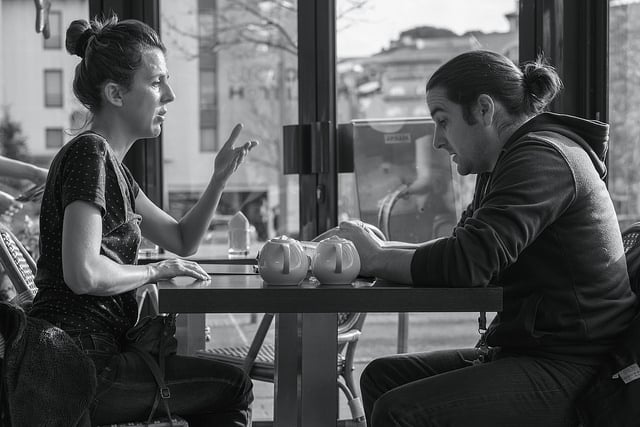Many of us have been faced with the decision of whether to engage in conflict with someone we think has wronged us.
It’s a tough place to be. And sometimes, it seems inevitable. But, like other life challenges, how we choose to respond to it is the important measure of our growth as human beings.
While conflict can be a catalyst for growth, it can also divert energy away from positive pursuits. It can damage relationships and the emotional well-being of the people involved.
Having spent 32 years as a trial lawyer and a neutral party mediator for 20 of those, I have closely observed the negative impacts of disputes of many kinds, and experienced plenty of my own. They have convinced me of the need for people to do more than bring individual differences to an end and go their separate ways.
Instead of sprinting to the courthouse, we should first try to work together to solve problems and heal relationships. We should be committed to collaborative peacemaking. Webster’s dictionary defines collaboration as: “to work with another person or group in order to achieve or do something.”
Solving disputes through the courts is not collaboration because our legal system is, by nature, adversarial.
Once a dispute has become a lawsuit, the possibility of working together to resolve it becomes less likely. Financial considerations, competition, ego-driven decision-making, inefficiencies in the justice system, and third-party interference are some of the obstacles that exist in that setting. And, even if, in spite of those obstacles, a dispute is resolved by agreement, the parties rarely find satisfaction from it.
They typically don’t find healing in the relationships from which the dispute arose—relationships that had value in the first place—or they wouldn’t have existed.
There are many effective approaches to conflict resolution. But, collaborative peacemaking is an effort to which most of us can devote more of our time and energy. Through a collaborative process in disagreements, small and large, adversaries become cooperative problem-solvers and opportunities exist for individual growth, developing better communication skills, understanding others, and peace that will last.
Collaboration is a springboard to development of new personal, spiritual, and cultural practices that promote respect, justice, and well-being.
Collaboration requires a willingness to “lay down arms” and work together for long-term well-being. Some will simply not have that willingness. They will just want to conclude their disagreement and never deal with one another again.
But, for those who are willing, collaborative peacemaking creates an environment of open communication that can be redemptive. It addresses some of the most fundamental needs we have as humans: to be heard, understood, and valued. It fosters compassion, empathy, non-judgmental listening, kindness, understanding of self and others, and spiritual and social responsibility.
And, it acknowledges the wisdom of some profound understandings:
“Peace does not mean an absence of conflicts; differences will always be there. Peace means solving these differences through peaceful means; through dialogue, education, knowledge; and through humane ways.” ~ Dalai Lama
“Be patient with each other, making allowance for each other’s faults because of your love. Make every effort to keep yourselves united in the Spirit, binding yourselves together with peace.” ~ Ephesians 4:2-3
Ken Sande, an internationally recognized peacemaker, says this about the process:
“Conflict presents unique opportunities to serve other people. When others are weighed down with problems and stress, God will sometimes use us to encourage them and help carry their burdens. In other situations, we may be able to give helpful advice, provide a positive example, or suggest creative solutions to problems. Best of all, conflict can provide the opportunity to demonstrate the love of Christ…even to people who are attacking us.” ~ The Peacemaker
The next time we believe we have suffered an offense, we may do well to think about these principles and the part we played in the breakdown of the relationship. It will be uncomfortable—personal responsibility often is—but, in my experience, it will lead to personal growth and better relationships.












Read 0 comments and reply